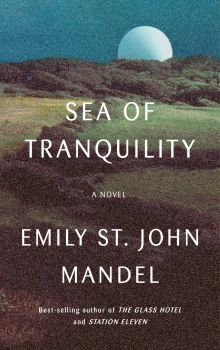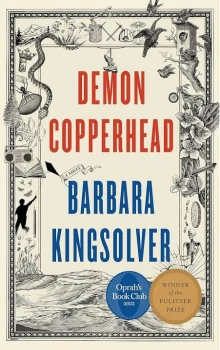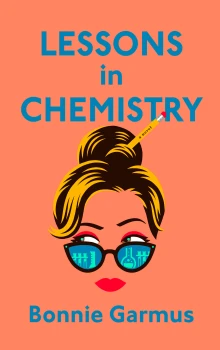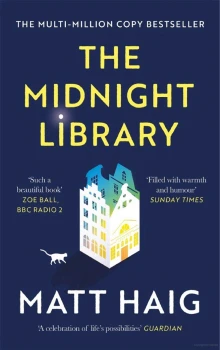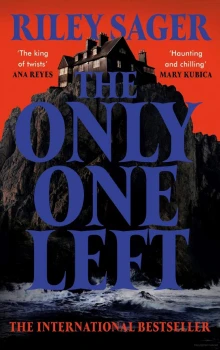3
She had to walk all the way through the party before she found Louisa, smoking a cigarette on a terrace that was really just a tiny patch of blacktop roof. She kissed her and then sat awkwardly beside her on a narrow stone bench.
“How are you doing?” Louisa asked. They lived separately but spent a great deal of time together.
“Not bad at all,” Mirella said, because she didn’t want to talk about it. It was troublingly easy to lie to Louisa. She knew it was unfair to compare people, everyone knows that, but a difficulty she was having at this moment was that Louisa seemed infinitely less interesting to her than Vincent. Louisa had a kind of unspoiled quality, an air of having been cushioned from life’s sharper edges, which was less appealing now than it had been. “I’m a little tired,” Mirella said. “I didn’t sleep that well.”
“How come?”
“I don’t know, just one of those random bad nights.”
Another difficulty of the evening: this was Jess’s party, and Jess was Mirella’s friend, not Louisa’s. In Mirella’s old life, her long-ago life wherein everything was different, she’d been to this terrace with Faisal. Now, as then, the space was dressed up with fairy lights and potted palms, but still felt a little like the bottom of a hole. This was the downside to having retained a few friends from her time with Faisal—there were dangerous places here and there, places where she could get sucked into memories of another life, and this terrace was among them. On another night, at another party—fourteen years ago? Thirteen?—she and Vincent had stood out here, a little drunk, looking straight up at the tiny patch of dark sky because Vincent swore she could see the North Star.
“It’s right there,” Vincent said. “Look, follow my finger. It’s not that bright.”
“That’s a satellite,” Mirella said.
“What’s a satellite?” Faisal asked, stepping out onto the balcony. They’d arrived separately, and this was the first time she’d seen him all day. She kissed him and didn’t quite fail to see the way Vincent glanced in their direction before returning her gaze to the sky. A difference between Mirella and Vincent was that Mirella truly loved her husband.
“There,” Mirella said, pointing. “It’s moving, right?”
Faisal squinted. “I’ll have to take your word for it,” he said. “I think I need new glasses.” He glanced around the cramped space, his arm around her waist. “Wow,” he said, “what a thrillingly boho firetrap.”
It was true. Buildings rose up on all sides. Three walls belonged to other buildings, and the fourth held the door that led back into the party. All these years later, sitting out here with Louisa, Mirella closed her eyes momentarily in order to not see Faisal gazing up at the sky.
“What did you do all day?” Louisa asked.
There had been a time when Mirella liked Louisa’s questions—what a gift, she’d once thought, to be with someone who was so interested, interested in everything she’d done all day, someone who cared enough to ask—but tonight it was an intrusion.
“Went for a walk. Did some laundry. Stared at Instagram, mostly.” Gaspery Roberts couldn’t possibly have been the man under the overpass, now that she thought about it, because that was decades ago and he hadn’t aged.
“Was that satisfying?”
“Of course not,” Mirella said, a little sharper than she’d intended, and Louisa gave her a surprised look.
“We should go somewhere,” Louisa said. “Maybe rent a cottage, get out of the city for a few days.”
“That sounds nice.” But Mirella was startled by the unhappiness that flooded through her at the suggestion. She very much did not want to go to a cottage with Louisa, she realized.
“But first,” Louisa said, “I need another drink.” She went inside and Mirella was alone for a while, then a woman came over to ask for a light and offered to tell Mirella’s fortune in return. Mirella held her hands out as instructed, palms up, embarrassed by the way they trembled. How could she have fallen out of love with Louisa so suddenly, so cleanly? How could the man in the tunnel in Ohio have surfaced all these years later in New York? How could Vincent be dead? The fortune-teller put her hands over Mirella’s hands, their palms almost touching, and closed her eyes. Mirella liked being able to watch her unobserved. The fortune-teller was older than Mirella had thought at first, somewhere in her thirties, first lines visible on her face. She was wearing a complicated arrangement of scarves.
“Where are you from?” she asked.
“Ohio.”
“No, I mean originally.”
“Still Ohio.”
“Oh. I thought maybe I heard an accent.”
“The accent’s from Ohio too.”
The fortune-teller’s eyes were still closed.
“You have a secret,” she said.
“Doesn’t everyone?”
Her eyes opened. “You tell me yours, I’ll tell you mine, and we’ll never see each other again,” she said.
It was an attractive proposition. “Okay,” Mirella said. “But you go first.”
“My secret is, I hate people,” the woman said, very sincerely, and for the first time Mirella liked her.
“All people?”
“All except maybe like three,” she said. “Your turn.”
“My secret is, I want to kill a man.” Was this true? Mirella wasn’t sure. It had a ring of truth about it.
The fortune-teller’s eyes darted over Mirella’s face, like she was trying to work out if this was some kind of joke. “A specific man?” she asked. She smiled tentatively—You’re kidding, right? Please tell me you’re kidding?—but Mirella didn’t smile back.
“Yes,” Mirella said. “A specific man.” It became real as she said it.
“What’s his name?”
“Jonathan Alkaitis.” When had she last said the name out loud? She repeated it to herself, more quietly this time. “Actually, maybe I just want to talk to him. I don’t know.”
“Pretty big difference,” the fortune-teller said.
“Yeah.” Mirella closed her eyes against the dark of the sky, the tumult of the nearby party, the reek of cigarette smoke, the fortune-teller’s face. “I guess I’ll have to make up my mind.”
“Okay,” the fortune-teller said, “well, thanks for the light.” She slid away from Mirella and vanished into the party, through an open door like a portal into a lost world. It was a cold night, and the moon was brilliant over New York City. Mirella stood looking at it for a moment, then returned to the party, which felt like a dream she’d had once, all abstract color and commotion and lights. Louisa was dancing in the living room. Mirella stood watching her for a moment, then waded through the crowd.
“I’ve got a headache,” Mirella said. “I think I’m going to go.”
Louisa kissed her, and Mirella knew it was over. She felt nothing. “Call me,” Louisa said.
“Adieu,” Mirella said, as she backed away through the crowd, and Louisa, who spoke no French and didn’t understand the implication, blew her a kiss.
